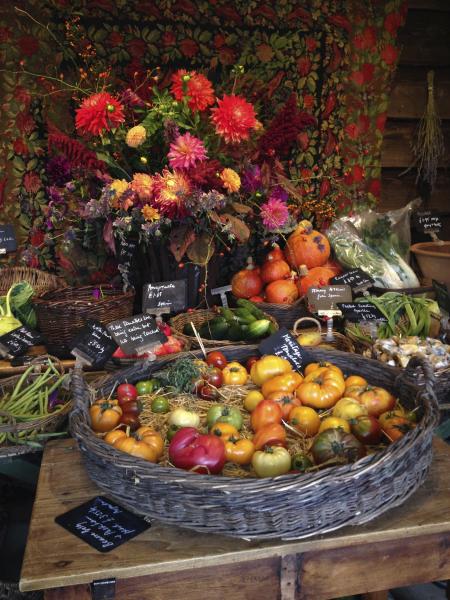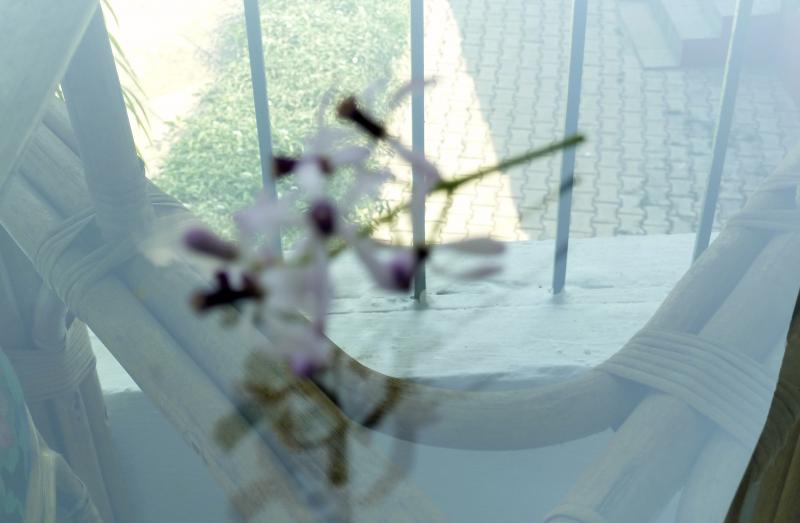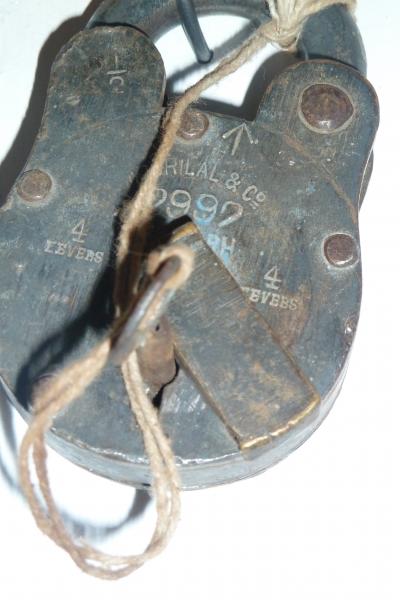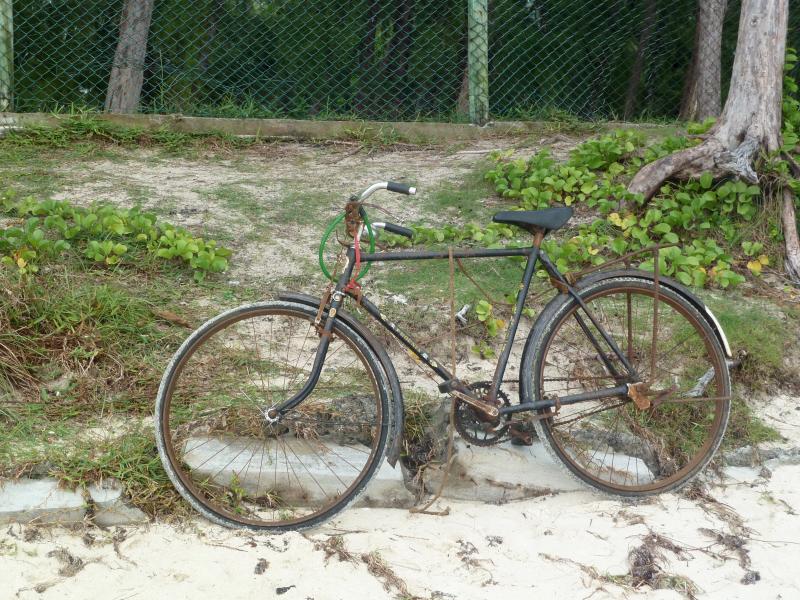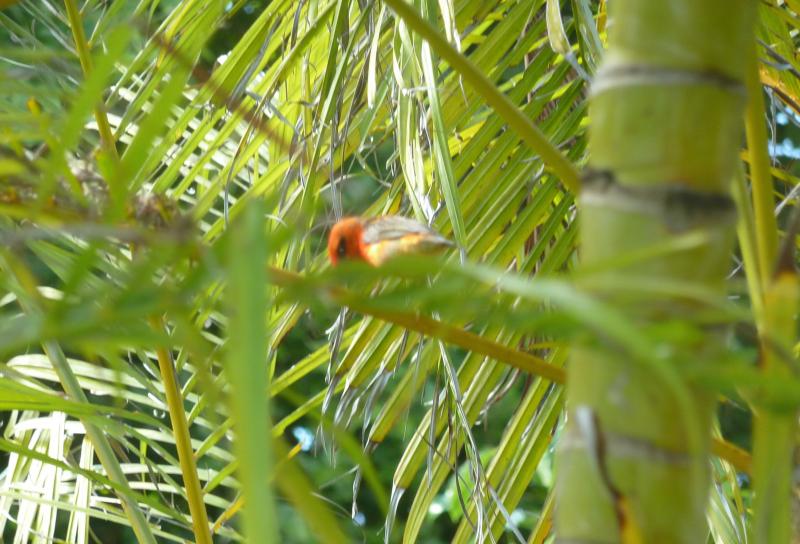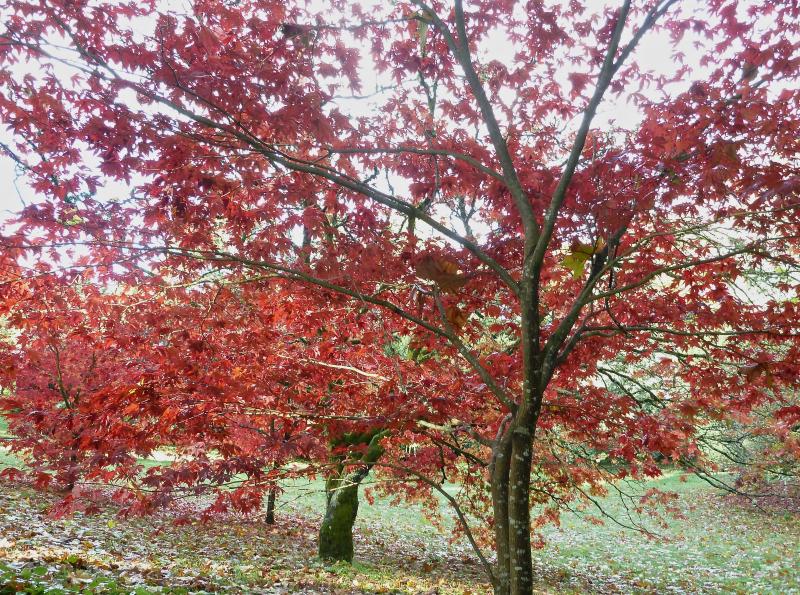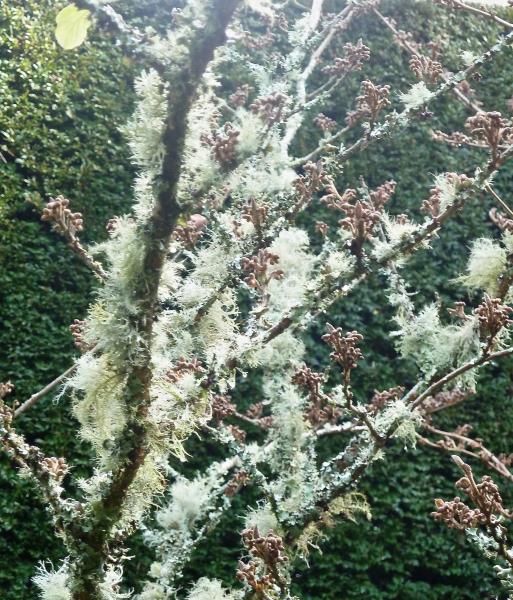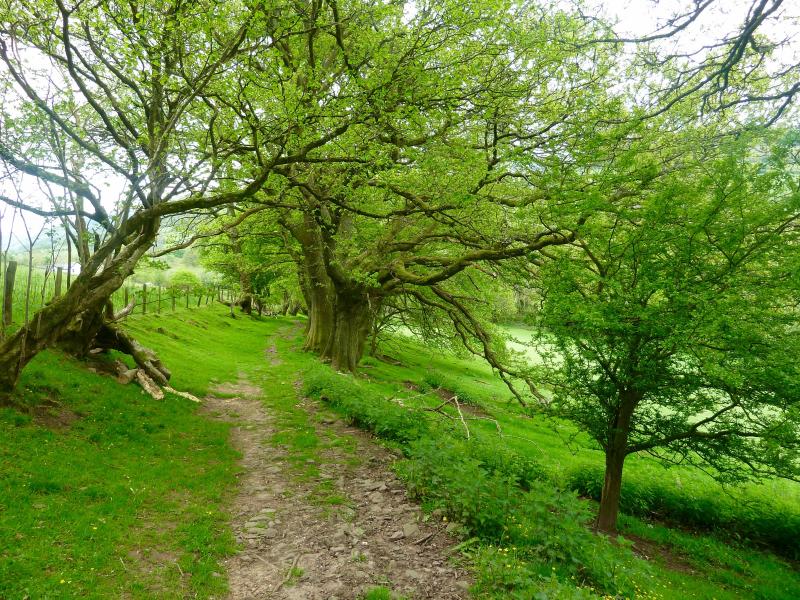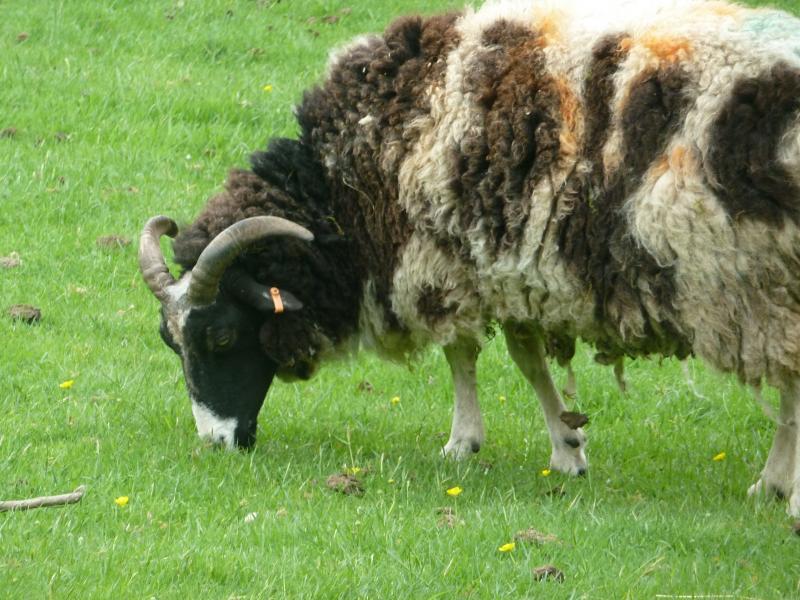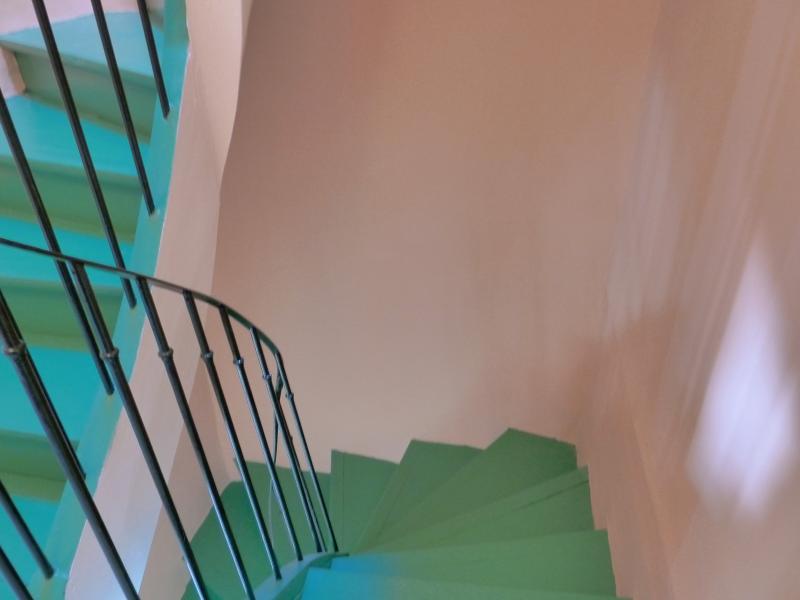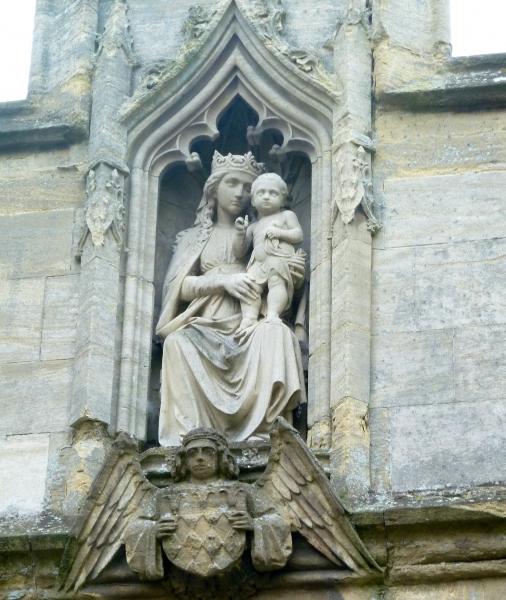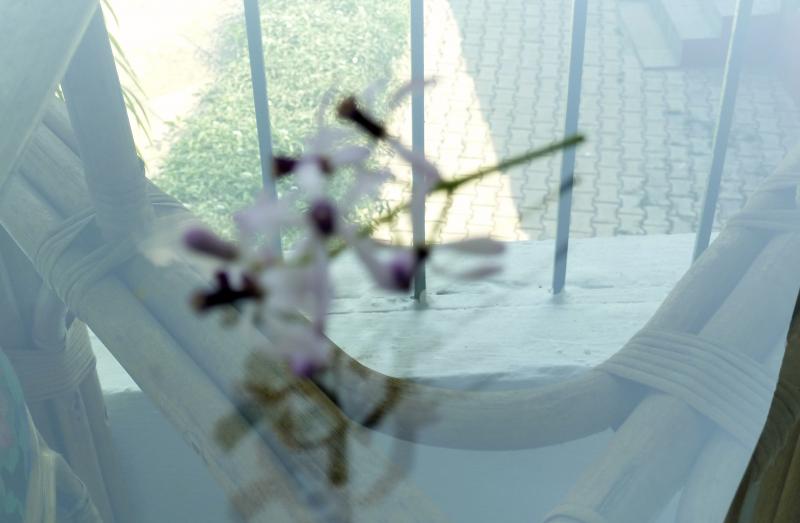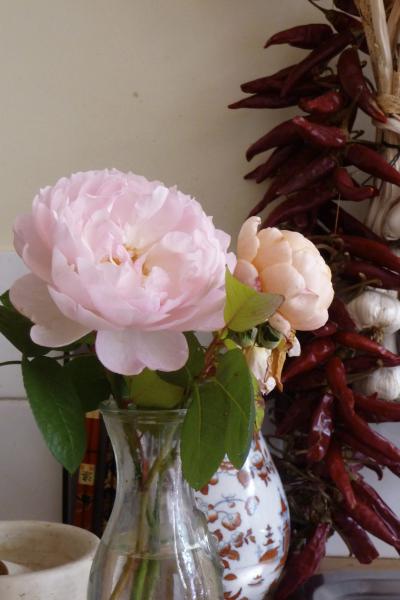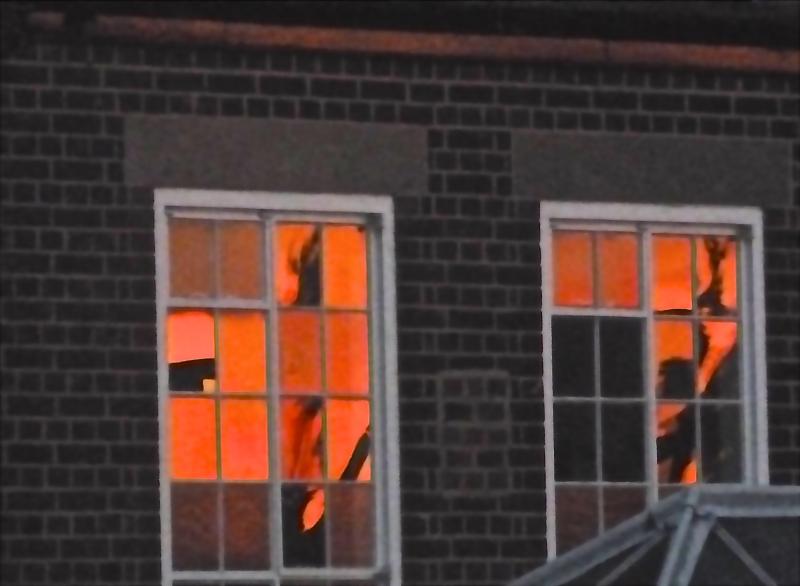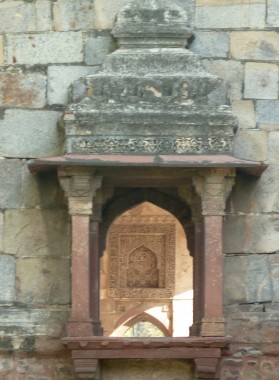 March 18
March 18
The week before Holi ushers in the summer- prelude to what Babar the first Mughal described as a hellish inferno. Summer is so extreme that it sucks the marrow from the bones. Already, in the last quarter of March my limbs feel a langour and brain shifts automatically to first gear.
6.30 am. The BA flight has been so easy that I’m hardly aware of jet-lag. I look out of my bedroom window and glimpse the walkers in the park swinging their arms with vigour. I join them but remembering how annoying they can be walk on a few streets further to the “little” park. A woman in dark shalwar kameez and white trainers is pumping the air anti-clockwise round the circuit, so I go the opposite way. We cross one another at two places along the circuit- near the Mali’s hobbit hut with its grass roof and stripey underpants hanging on a string clothesline, and near the benches where the old ladies gossip in the evening. The early morning freshness, the brilliant vegetation, is all so familiar. Soon I note that our passing points have changed. She is outpacing me. She’s increased her pace. Delhi style competition at 7 a.m!
I have waved good bye to my brother and his wife at 6 am- not even air kisses because there’s not much sentimentality in our family- and when my 25 minutes of walking are up I return home for half an hour’s yoga.
Bougainvillea drapery in brilliant magenta and orange, the last of the Spring herbaceous bedding just fading (sweetpeas brought by me years ago, the seed saved by the mali, finally over), next month’s mulberries beginning to show.
8.30: Breakfast of papaya and tea. Neither very tasty. The tea is Taj Mahal teabags and the papaya is from Ahmad the vegetable seller who never has good fruit. Papaya, chikoo, cape gooseberries and black grapes are in season and very good if bought from old friend Shandy in the market. Mother still in bed, gearing up for bath time.
11: After a shower and a look at the papers I call a taxi from the stand and trundle off in a black and yellow Ambassador. Fauja Singh is not available so my driver is a wiry hillman from Himachal, nearly all yellow and black taxis (now under serious threat from radio cars and Uber) are driven by Sikhs or Himachalis.
 12 pm: First stop Altitude Stores. Not sure why this small idiosyncratic organic health food shop is called Altitude, but it’s the only place I know of in Delhi that is properly organic. You can even buy milk, eggs and salad here; otherwise one is never sure what kind of sewage has contaminated what you are putting in your mouth. It’s a nondescript, shabby, homely sort of shop and the staff are smiley and helpful and remember you by your first name- no Aunty, Memsahib, Madam or (horrors) Mataji here.
12 pm: First stop Altitude Stores. Not sure why this small idiosyncratic organic health food shop is called Altitude, but it’s the only place I know of in Delhi that is properly organic. You can even buy milk, eggs and salad here; otherwise one is never sure what kind of sewage has contaminated what you are putting in your mouth. It’s a nondescript, shabby, homely sort of shop and the staff are smiley and helpful and remember you by your first name- no Aunty, Memsahib, Madam or (horrors) Mataji here.
12.30: next stop Devans, in an obscure cul-de-sac in New Khanna Market, which still has resonances of Partition refugee shopkeepers. The perfume of roasting coffee floats down the lane of tent wallahs, back street tailors who display busty sari blouses which need Maidenform bras on hangers, a filthy looking dry cleaner who does the cheapest invisible darning in town (the famous Kashmiri “raffoo”) and Mr Arora who carries stack upon stack of embroidered and braided ribbon and haberdashery and always passes me a twist of black aampapar (dried mango pulp). I try not to think about hygiene when I put it in my mouth. A dung-spattered cow stands in front of the wool shop, where ladies meet in the winter months to choose hanks of luridly coloured acrylic for intricate knits. A couple of doors away at Devans I ask Keshav, the owner, why he doesn’t put a couple of tables and chairs on his verandah for punters to sample his aromatic peaberry and arabica. He laughs and laughs at my suggestion. “The tentwallahs. Filthy people- they will never give us any peace.”

1.30: Lunch- yellow dal that tastes like nothing I can cook in my kitchen, a dish of delicate tori (green snake gourd) cooked in a light sauce of tamarind, cauliflower and potatoes spiced with nigella seed and garlic and rotis made with a buckwheat-like grain. Misrilal has added green coriander leaves and garlic to the much kneaded dough which makes a waferish, nutty tasting bread. My mother and I finish with home-made yogurt, limpid and mild, and crumbly brown country sugar (shakkar).
My mother eats well and helps herself to a chocolate from a box sent specially for her by Annie.
My eyelids are drooping. The food and the heat. It’s 89F. I give in and have a bit more than 40 winks on the sofa next to my mother as she knits another shapeless pullover. There’s a knock on the door. Pamma says Basanti the massage lady has arrived. Basanti hasn’t much finesse- she learned her massage from her grandmother in her Bihar village- but she pummels quite effectively and clears her nasal passages frequently; still, I like the feel of almond oil on my skin.
After tea- this time masala chai from Devans, with added ginger and mint- Milan drives my brother’s Honda to the towering complex of Habitat Centre. We should have joined when it opened- now it’s impossible. At least I have membership of the India International Centre, once the haunt of poets and playwrights (“intellectuals” as the Delhi press calls them, which of course makes me one) now full of elephantine businessmen and their wives busy eating and drinking.

It takes ages to get to Habitat because it is “going home” traffic as opposed to “office time” traffic and the “jaam” is heavy. I see a boy of about eight walking by with his papa. He has neatly slicked hair, a blue shirt and a curious adult set to his mouth: resolute and ready to take on whatever life throws at him. Not quite a determination, but the stoicism of the aspiring formed from small disappointments in his short life: being curbed by parents, scolded by teachers, shunned by peers and still he wills himself onwards and upwards. He could be a hardy Pahari from the hills of Shimla or slopes of Dehra Dun.
Finally I get to the Habitat Centre and meet AshaRani to listen to a lecture by a scholar of theatre, Shanta Gokhale. She is a slight woman in her sixties with a short crop of grey hair. She is charmingly modest and self-deprecating and her topic is “Truth in the Theatre”, by which she means Indian theatre of course, a huge and evasive topic.
“Truth is under assault. In a pluralistic society truth cannot be one: that can lead to a dictatorial agenda. In the Arts truth has to be different versions and kinds of truth.” This is a clear reference to the Modi government and the current wave of protest and concern about the undermining of intellectual and religious freedom and plurality.We are in the thick of a noisy debate on the nature of national identity. If a Muslim doesn’t shout “Bharat Mata ki jai” does it signal his lack of patriotism, his alienation from his Indian identity or is it exclusively to do with Hindu identity?
Shanta Gokhale quotes Picasso. “Art is a lie that forces us to look at Truth.” Painting and music are abstract concepts but theatre has to be grounded in the physical, with its components of lighting, music, scenery and action, all of which need to collaborate in a version of the playwright and director’s understanding of truth.
AshaRani has a coughing fit brought about by the airconditioning, so we leave directly after the talk to another hall in the Centre where the great 88 year old Shanno Khurana is singing, sitting unconventionally with her legs hanging over a platform because she can’t manage to cross them for very long periods.

Shanno Khurana at home
Diamonds sparkle in her ears and she is regally crowned by a snowy mass of hair. Around her on stage are her two favourite women students, a tabla player, a harmonium player and a second tanpura. Her voice is supple and flexible as it travels up and down the scale in her passionate rendition of Holi songs.
Shanno is a friend of my mother and was going to give a public concert on my mother’s 90th birthday, but my mother broke her femur two days before, so it never happened. Shanno’s husband was our dentist, a retired Air Force officer who was a contemporary of my late and favourite uncle, Air Marshal Krishan Mohan Ram
And so ends day one in Delhi.
It’s been a very full day (how have I lasted?) and when I turn out the light I reflect for a few minutes on how it feels to be back in the city where I grew up, a city which used to be known as the biggest village in the world; so familiar and so comfortable in my head and heart, full of the sights and sounds I’ve experienced. I hope the night watch’s whistle and cry will not wake me.
P.S. Many of the pictures were taken at the somewhat dusty Crafts Museum which is full of beautiful objects, but needs a spruce up.













